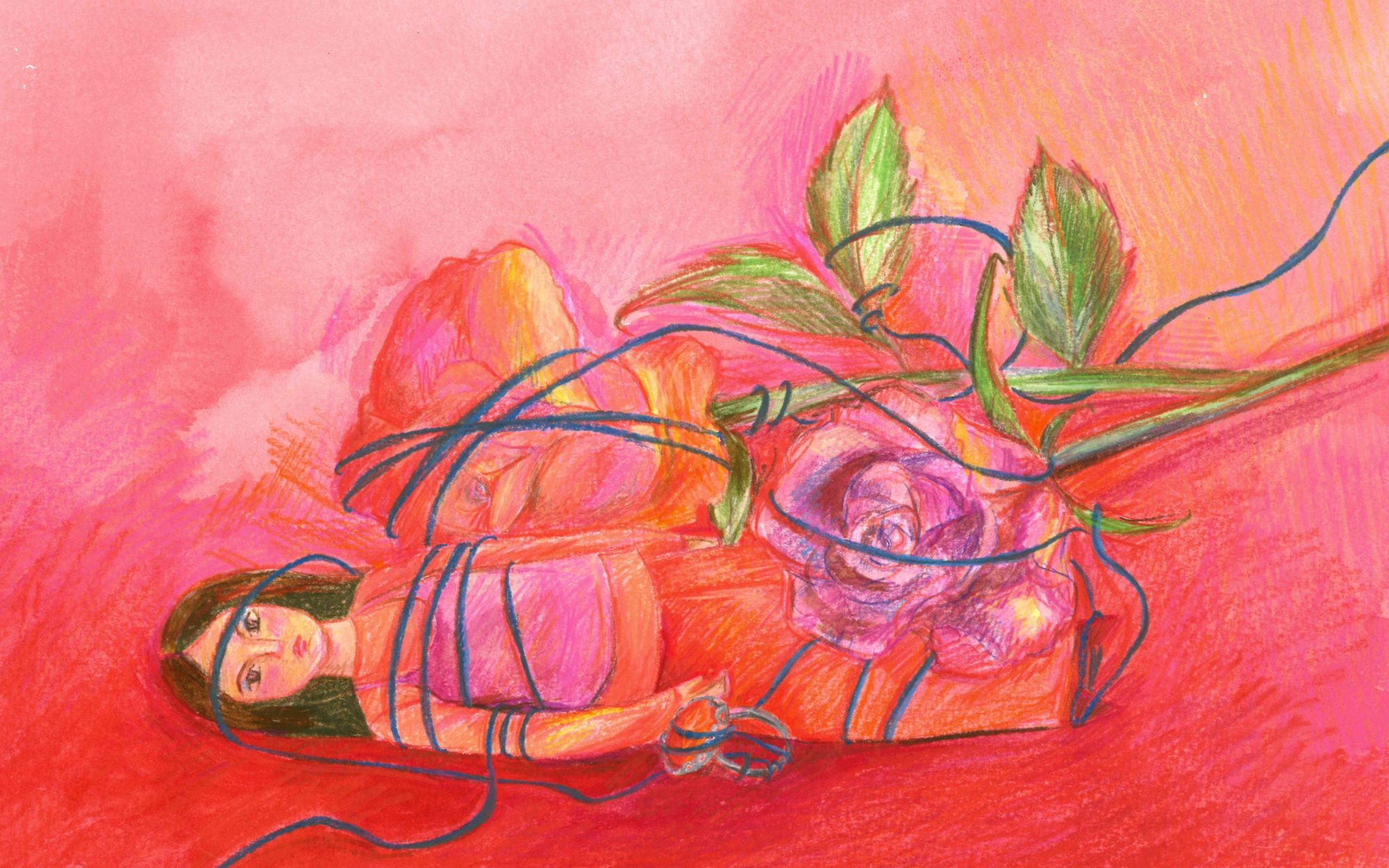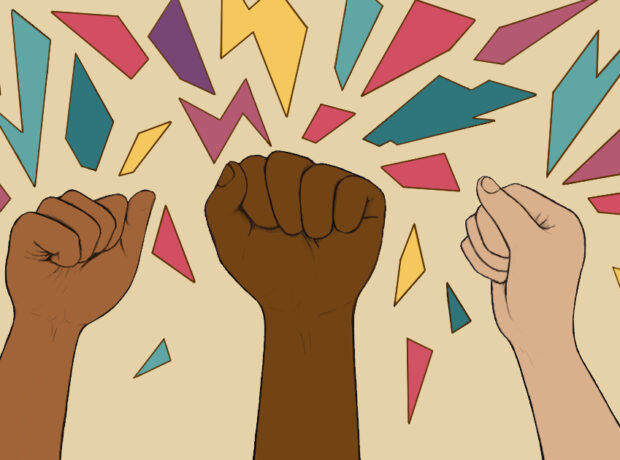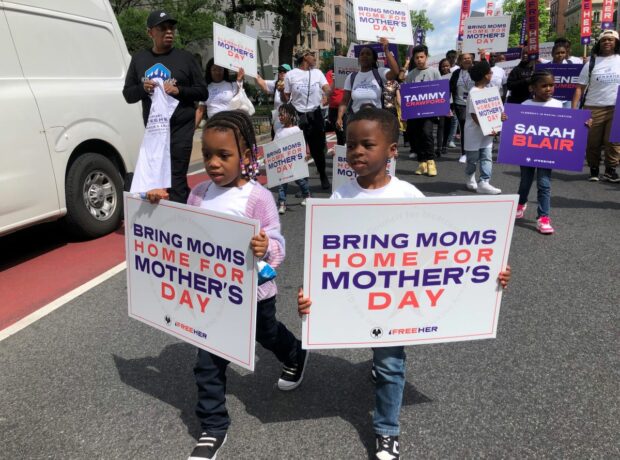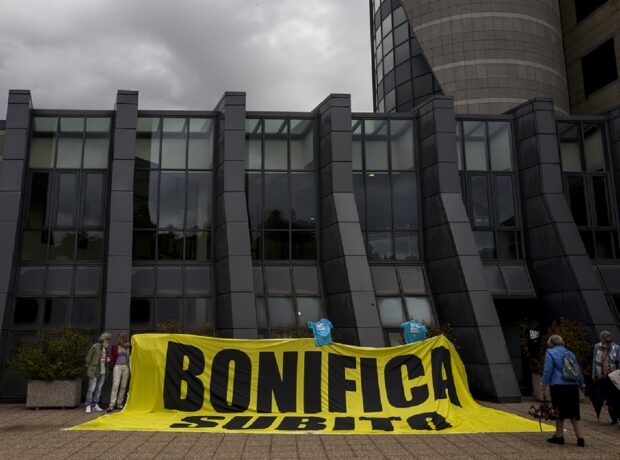This tender and evocative poem by Mina Hadi follows a girl as she grows up, marries and comes to terms with the impact of Female Genital Cutting/Mutilation (FGC/FGM).
Art work by Beatrice Florence Taylor.
cut
basma is sixteen years old when she weds.
clad in white from head to toe, she tries to
smile as the bridegroom lifts her veil to show
her face. but all she manages is a
kind of grimace. still, this is her life now,
and kareem is a good man – twelve years her
senior, true, but still handsome and (it
seems) good-natured. he is gentle as he
takes her hand, drops a kiss on it, and when
he looks up, meets her eyes, basma wonders
if perhaps the beating of the drum – which
matches the thump-thump of her heart – is not
as terrible as she thought it would be.
she is eight, dressing her dolls, carefully
combing their hair, when basma becomes a
woman. she sees her first blood. her mother
kneels until she is level with her child
and says your sins are being counted now.
allah is watching, ya basma. you may
be a princess, but one day you will be
a wife as well. you are a woman now.
her child just dissolves into tears and then
complains of the pain, of the ache in her
abdomen. little does she know that that
pain is nothing – nothing – compared to what
awaits her in two weeks’ time. she is led
by the hand to a tent, greeted by the
slow, steady beat of a drum. duff. duff. duff.
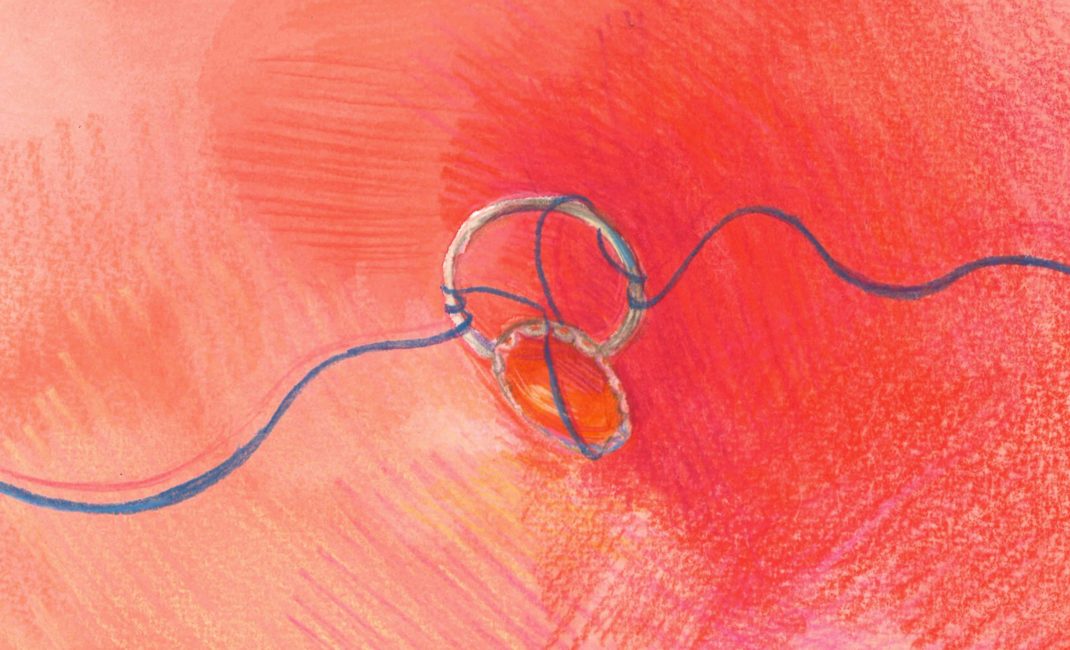
she knows why she is wearing white for her
wedding. she is supposed to leave them – her
family – in a white dress, and return
to them in a white dress. and sometimes she
wonders when that will be, when she will be
returned to the very earth she came from.
she wonders whether anyone would mourn
her. she glances up, catches her sister
jamila’s eye, tries for a smile. she does
manage one this time, slight though it may be.
jamila doesn’t smile back, though. her eyes
are watery, kohl barely kept in place.
she looks beautiful, basma thinks, clad in
pink like her other sisters. jamila
would mourn her, basma decides. so too would
her father. maybe even her mother.
there she is. in the tent. the woman who
is beating the drum is brimming with pride
and basma wonders why. she cannot for
the life of her understand what she is
doing here. a celebration was in
order, said her mother, now that basma
had blossomed into womanhood. women
are flowers, ya basma, beautiful when
they are in bloom, but they are delicate.
fragile. this will make you strong, habibti.
she doesn’t want to be strong, though. not when
there is a towering woman in her
fifties coming through the tent’s opening.
she zips it firmly shut behind her, and
the beating of the drum intensifies.
it’s time to say her farewells. she hugs her
jamila the longest, weeping into
her shoulder through her veil (she’s dressed in black
now, from head to foot, and only her eyes can
be seen behind her niqab). next is her
father, who kisses the top of her head.
last is her mother, who murmurs words of
blessing to her daughter. remember, ya
basma. you are a flower. but you must
be strong now. you are a grown woman and
a wife. basma whispers back, I love you.
ana bahibak, habibti, says her
mother, just before basma is lifted
off her feet and placed on a sheet. lie back,
the older woman orders. she starts to
undress her from the waist down. no, basma
says in defiance. she tries to get up –
but a warm hand grabs her wrist and stops her.
stay, orders her mother. what’s happening?
cries basma. this is the beginning of
your womanhood, child, the older woman
barks. the hand on basma’s wrist tightens, and
another woman holds down her other
arm. two more women hold down her feet, in
a vicelike grip. stop, you’re hurting me, she
tries to say, but the words just taste like blood
on her tongue as she bites down in pain. she
screams, for never before has she felt such
agony, the sharp sensation in her
groin, the flash of red, the glint of silver –
they are in a hotel in bali. the
honeymoon suite is theirs. basma prepares
for bed, quickly undressing and putting
on her nightgown. kareem comes out of the
bathroom, still dressed, and basma tries to smile
at him. you do not have to be nervous,
he tells her. let us take our time. basma
shakes her head. let us get this over with.
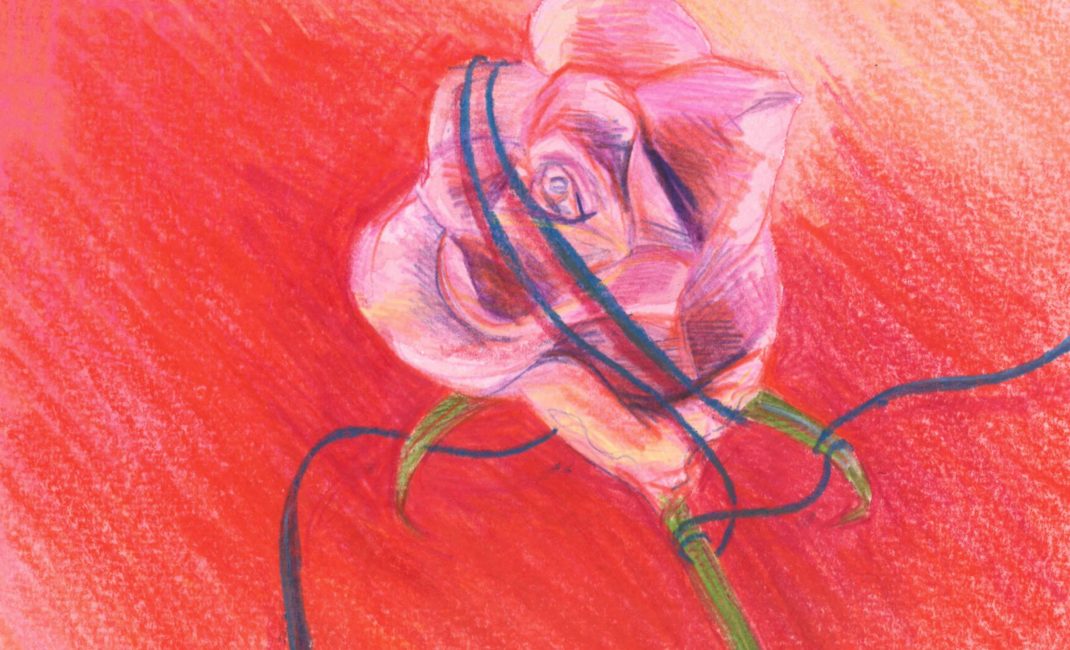
they cut a piece of flesh from between her
legs and she kicks and screams, but it only
makes the pain worse. tears spurt from her eyes, and
they drip down her cheeks and slice down her neck
while her shrieks cut through the hot air of the
tent. basma tries to remember what her
mother said: habibti, this will make you
strong. habibti, ana bahibak. but
basma does not feel strong, held down by four
women panting with the effort that comes
with restraining an unruly girl in
more pain than she has ever been in in
her life. nor does she feel loved. if she was
loved by her mother, truly beloved,
she would not be shackling her daughter to
the sheet, holding her wrist tight, or – later –
standing by while the older woman sews
up her wounds. basma is compliant now,
for the deed is done, and the damage, too.
he kisses her, gently, softly, so she
is almost enjoying it as she lies
beneath him on the bed. he pulls up her
nightgown, squeezes her breast, kisses down her
neck. kareem asks if he should stop, slow down,
and basma is actually surprised that
he does, so much so that she reaches up
to kiss him, hand on his chest. kareem smiles
against her lips, murmurs, I will take that
as a no, then, and basma laughs, truly
laughs, so when he’s inside her the pain is
all the more cruel and unexpected.
they celebrate with a feast, but basma
can’t eat. she can barely walk on her own
two feet. she pushes her food around her
plate, waits, waits, but no one is outraged. her
mother sits at the head of the table,
telling the story of her strength during
her circumcision. it is allah’s will,
she declares, and alhamdulillah, my
daughter has undergone the sacred rite.
basma’s aunt speaks up from next to her, says,
she kicked and screamed. that is not strength. basma
recognises her now, as one of the
women who held her down by the wrist as
she was sewn up, excruciating stitch
by excruciating stitch. basma looks
down, bowing her head in shame, until her
mother lifts her chin and says her name. she
is strong. she is with us now, is she not?
her chastity is now ensured. allah
can protect her. my princess. habibti.
she tries not to cry out, but the pain is
comparable only to one time in
her life: when she was eight years old in a
tent at the mercy of a woman with
a razor. kareem immediately
withdraws, the smile gone from his lips, and he
lightly strokes her cheek. something is wrong, he
says. no, basma lies, nothing is wrong. she
knows that there is meant to be pain and blood,
has been sat down with her older sister,
who told her what to expect on the night
of her wedding. something is wrong, kareem
insists again. I did not expect to
see so much blood. why do you cry out so?
have you felt pain like this before? he asks.
he pulls his clothes back on, insists on the
same for her, covering her with a sheet.
there is a moment of hesitation.
yes, basma says at last. when I became a
woman. and she tells him the story, what
she remembers, of the tent, the drum, the
red blood on the white sheet, the tears, the feast.
the details are stamped on her heart, written
– carved – into her skin with a blade that digs
right through to her bones as tears trickle down
her cheeks. kareem brushes them away with
his thumb, kisses her forehead, vows to fix
this. you cannot fix this, basma replies.
wounds heal. so too does skin and blood replace
itself, replenished as if it never
was lost in the first place. even pain does
not last forever – the physical kind,
at least. basma is examined by a
physician a few weeks later. she is
from england, this woman, and there is no
mistaking the way her eyes widen with
horror. basma listens in, hears her speak.
her whole external genitalia
has been excised, she says. how could you let
your daughter go through such a thing? it is
barbaric, is it not? then basma hears
her mother’s voice. this is not england. this
is saudi arabia. we did not
ask you here to judge. nor do we expect
you to understand our practices. we
want to know if she is healed. the doctor
sighs, says reluctantly, yes, she has healed.
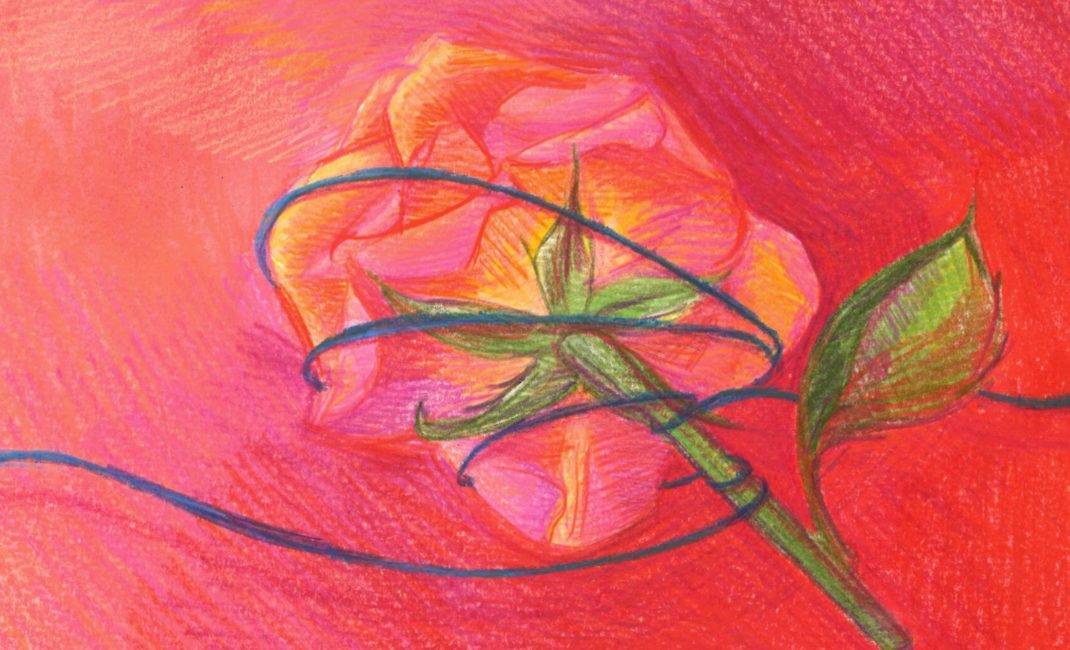
a deinfibulation is arranged.
kareem vows to delay intimacy
until then, but first basma returns to
her mother. she asks her why. because it
is allah’s will, ya basma. and you were
deterred from sin until you could marry.
basma closes her eyes and asks about
the tearing and bleeding on her wedding
night, all as a result of this backward
rite. it is a necessary pain, her
mother replies, that I have been through too.
I told you. it makes you stronger, basma.
circumcision shows you can withstand pain.
I am proud of you for being so brave.
life is a test, and this is allah’s will.
but basma says, I will never go through
that pain again. she gets up and leaves. she
can do that now; she is no longer her
parents’ property. she was kareem’s, and
he relinquished ownership of her on
their wedding night. her mother watches her
go, crestfallen, still chained to her customs.
whenever she goes out now, she covers
herself completely in black. mostly, though,
she stays inside, in the warm walls of
the palace. when she closes her eyes she
is blinded by the glint of the razor;
and then she claps her hands over her ears,
deafened by the drum. then, one day, when she
is thirteen, she picks up her own blade, cuts
her thigh. the blood dribbles down her leg, and
it hurts, enough to dull the pain in her
heart, so she does it again and again
and again, until she forgets it all.
it comes back to her, though, in the dead of
the night, when she least expects it, her cries
echoing in her cavernous room where
no one can hear her. she is trapped, feels like
she will snap soon, her trauma cutting her
into pieces, one fragment at a time.
when they cut her this time she welcomes it.
this time, she feels nothing but safe, drowsy
from the anaesthesia, and the man
towering over her is a surgeon
who sits her down, explains the procedure
to her before it is done. after, the
pain is still there, but it’s dulled, the sharpness
blunted by kareem’s hand squeezing hers, tight.
and she realises as she returns home,
hand in hand with her husband, that she was
never mutilated. no, she was cut,
subject to the jagged bleeding edge of
an imperfect custom so ingrained in
her mother’s mind. edges can be refined,
though, smoothed over time. and basma vows – as
she lies in bed, her head on her husband’s
shoulder, arm around his waist – to restore
what is missing for her mother as well.
she is almost sixteen when she receives
the proposal from a royal cousin.
she agrees, but her father insists on
her finishing her schooling. basma likes
school, is good in class. one day, she decides,
she wants to be a teacher and work with
children. she agrees without argument
to the arrangement. (she learned long ago
that it was futile to put up a fight.)
basma is eighteen years old when she gives
birth, to a beautiful baby girl she
names talia. kareem whispers the adhaan
in their child’s ear, places a date in her
mouth. basma rejoices as her child is
placed in her arms. when her mother comes to
visit, basma lets her hold talia, and
she watches as her mother kisses the
baby on the forehead, gently, tender
to the touch. under her breath, basma says,
barely louder than a whisper, mother,
I forgive you. allah help me, I do.
but as she takes back her child she swears to
allah that talia will not go through
her anguish, nor will she suffer her pain.
